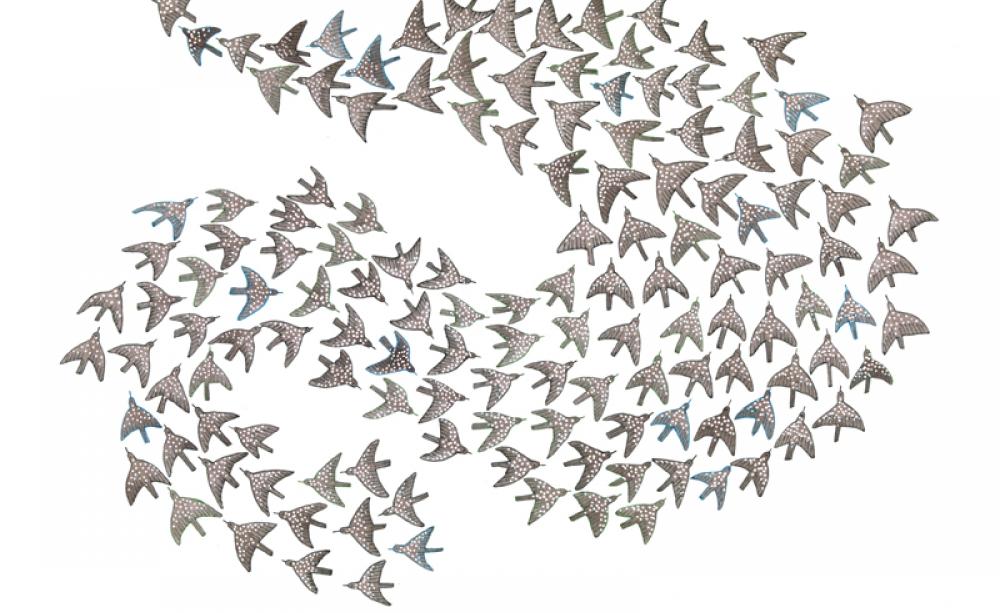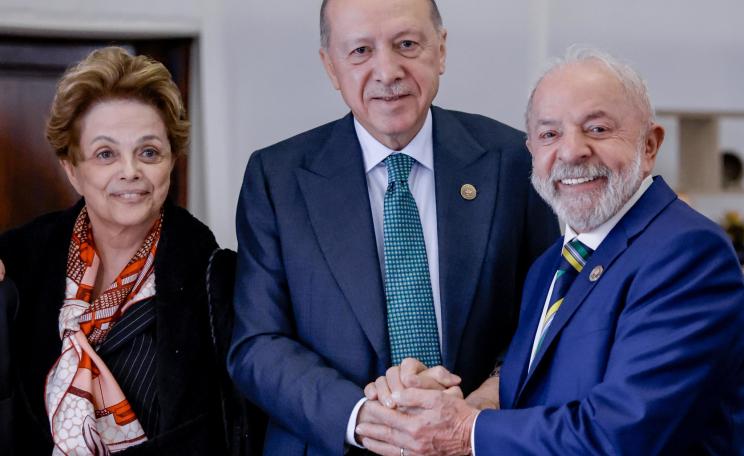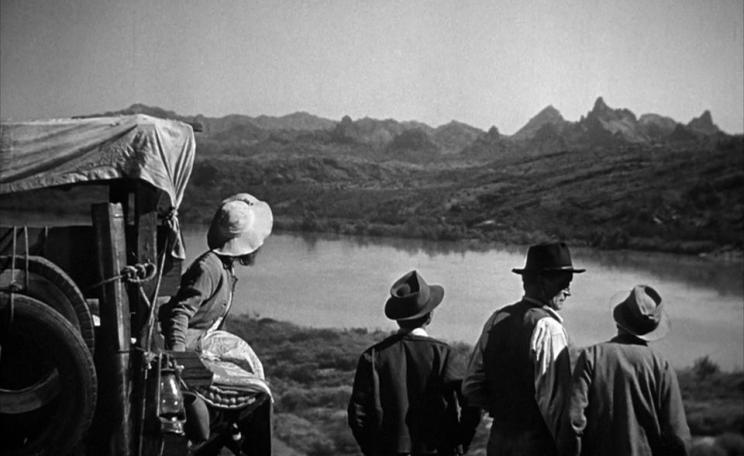If we witness an injustice that is in our power to redress, it won’t do to shrink away from that and practise some other just action in a more comfortable zone of our lives, relying on morphic resonance to remedy the one we witnessed.
Let me present a logic that has immersed me ever since, as a teenager, I became aware of the state of the planet. The world has some big problems right now. The crisis is urgent. There is no time to indulge in small, insignificant solutions that will be swept away by the tsunami of climate change, economic meltdown, nuclear holocaust, resource-scarcity-fuelled wars, and so forth. We need big solutions to big problems. Therefore, whatever you do on a local level, you’d better make sure it is scalable. You’d better make sure it can go viral, because otherwise its impact will be trivial.
Contained within this logic is an implicit hierarchy that values the contributions of some people – and some kinds of people – more than others. It values the activities of people who have a big reach, a big platform, a loud voice, or the money or institutional power to affect thousands or millions of people. That valuation is, you may notice, nearly identical to the dominant culture’s allocation of status and power – a fact that should give us pause.
The logic of bigness devalues the grandmother spending all day with her granddaughter, the gardener restoring just one small corner of earth to health, the activist working to free one orca from captivity. It devalues anything that seemingly could not have much of a macrocosmic effect on the world. It devalues the feminine, the intimate, the personal, and the quiet. It devalues the very same things that global capitalism, patriarchy and technology have devalued.
Yet the logic seems indubitable. Surely my message will have a bigger effect if a million people hear it than a thousand, or one, or none at all? Surely, if the gardener puts a video of her soil regeneration project on social media, it will have a much greater potential impact than if she practises it invisibly on her small piece of land? Because if no one finds out about it, it will affect only a few square metres of soil, and nothing more. Right?
Here we come to what some call the “theory of change” that underlies the ambition to do a big thing, to scale it up, to reach millions. At its root it is a Newtonian cosmology that says that change happens only when a force is exerted upon a mass. As a single individual, the amount of force you have at your disposal is quite limited. But if you can coordinate the actions of millions of people, perhaps by becoming a president or a pundit, or by having lots of money, then your power as a change agent is magnified as well. Thus we sometimes see an ambitiousness among NGOs and activists that eerily mirrors that of CEOs and celebrities: a race to compete for funding, for members, for Facebook likes, for mailing lists, for consumer attention.
A force-based causality in which bigger is necessarily better is a recipe for despair, paralysis and burnout among those seeking social and ecological justice in the world. For one thing, the ruling elites who are wedded to the status quo have far more force-based power – more money, more guns, and through concentration of media a much bigger voice – than any activist organisation ever could. In a contest of force, we lose. Furthermore, when we buy into bigger-is-better, most of us must live with the disheartening knowledge that we are smaller-and-worse. How many of us can have a big voice that reaches millions? By necessity, very few.
If we witness an injustice that is in our power to redress, it won’t do to shrink away from that and practise some other just action in a more comfortable zone of our lives, relying on morphic resonance to remedy the one we witnessed.
Taking for granted the assumption of a separate self in a world of force-based causality, moral philosophers have grappled for several centuries with a disheartening corollary: that what you do doesn’t matter. For example, no matter how much you conscientiously recycle and conserve, your individual actions won’t make a difference. It takes millions of others doing the same. And if millions of others do it, then it doesn’t matter if you do or not.
Philosophers have advanced various moral and ethical principles to countermand this logic, which is on its own terms unassailable. Foremost among them is Kant’s Categorical Imperative: act in the way you would want everyone to act in that situation. This idea is common in popular morality today: “Don’t dump poison down the drain, because even though it won’t matter if you do it, if everyone thought that way it would matter.” Yet underneath that morality lies a secret, nihilistic fear: “Yeah, but not everyone thinks that way. Actually, it doesn’t matter what I do.”
We need another reason to do those small things that, if everyone did them, would add up to a more beautiful world, a reason beyond “If everyone did them it would add up to a more beautiful world.” Because you and I are not “everyone”.
My indoctrination into the logic of bigness has exerted an insidious effect on my life, causing me always to question whether I am doing enough. When I focus on the small, intimate realms of life, taking the hours to tend a relationship, to beautify a space, perhaps, or to enter the timeless child’s world with my youngest son, I am subject to an unease along the lines of “There is something more important I’m supposed to be doing.” The logic of bigness devalues the very heart of life.
We all have another source of knowledge that holds the small, personal actions sacred. If a loved one has an emergency, we drop everything to help because it feels like the most important thing we could possibly be doing at that moment. It feels like the most important thing in the world to be at the bedside of a dying loved one, or, less dramatically, to be present for a child at a special moment.
Reality, moreover, often turns out to be the opposite of what the arithmetic of measurable impact would suggest. The most potent actions are often the ones done without forethought of publicity. They are sincere and uncalculating, touching us with a kind of naivety. Ask yourself which is more inspiring: to accidentally witness a touching act of generosity, or to watch the same act staged to become a spectacle? In my work I have discovered that the most powerful gatherings were the ones that were not recorded, and I don’t mean merely “powerful for the people in the room”, but powerful in their ripple effect. And what of the man who stood in front of the tanks in Tiananmen Square? Would it have been as potent a symbol if he had made sure first that someone was there to photograph it? Maybe causality doesn’t work the way we’ve been told.
We are transitioning away from a narrative that holds us separate from each other and the world, towards a new and ancient story that Thich Nhat Hanh calls interbeing. In that worldview, self and universe mirror each other: whatever happens to any being is also happening in some corner of ourselves. Every action we take ripples out to affect the whole world and eventually comes back to affect us as well. Rupert Sheldrake articulates the same understanding as the principle of morphic resonance: a change that happens in one place generates a field of change that causes similar changes to happen everywhere.
Perhaps part of that transition out of the old story of separation is a strange and growing incapacity to act among those powers that have the most force at their command. Despite its mighty military, the United States seems increasingly incapable of achieving its foreign policy objectives. Despite its arsenal of antibiotics and other forms of pharmacological force, modern medicine seems helpless to stem a stagnation or decline in health in the developed world. The world’s central bankers are powerless to fix the global economy, despite possessing the ability to create infinite amounts of money. As a society, we are losing faith in the tools and methods that we thought gave us power.
The principle of interbeing or morphic resonance coincides with our felt experience of significance when we engage the people and land around us with love, courage and compassion. Even if we have no idea how those choices will affect the world, we sense that they do, and yet, paradoxically, we don’t make the choices for that reason. Sometimes we encounter special choice points in life that seem to be deliberately constructed to offer no possibility of selfish benefit – not even the benefit of being able to tell ourselves we are doing some big important thing. These moments are opportunities for self-creation, when we choose to listen to the voice of the heart over the voice of the calculating mind, which says we are being impractical, unreasonable or irresponsible.
Reasoning from interbeing, applying the principle of morphic resonance, this opposition between heart and mind crumbles away. Every act of compassion strengthens the global field of compassion; every choice of conscience strengthens the global field of conscience. Each act becomes equal; each act ‘scales up’, even if by a process so mysterious and untraceable as to evade any perceptible sequence of cause and effect. How can anyone know what fruits will come from that monumental effort at patience you made, unwitnessed, when you stayed gentle with your child on that frustrating afternoon?
None of this is meant to denigrate political or social activism that seeks macroscopic changes: rather, it is to elevate the seemingly small to equal status with the large. People possess a kind of primal ethics that understands that we are all equally important, that no human life is to be valued above another. Accordingly, there must be some God’s-eye perspective from which every one of Barack Obama’s choices is no more or less significant than the choices of the lonely addict in the alley. The former’s choices may have an immediate and visible effect on the world, while the latter’s may bear fruit 500 years in the future. We cannot know.
Nor does this mean that we should ignore the mundane forms of causality that confront us as we face the world’s problems. If we witness an injustice that is in our power to redress, it won’t do to shrink away from that and practise some other just action in a more comfortable zone of our lives, relying on morphic resonance to remedy the one we witnessed. Life calls us into action, and we maximise the power of our actions when we trust that call. The ebb and flow of life calls us sometimes to what looks big and sometimes to what looks small. Let us not allow the metaphysics of the separate self to interfere with our listening.
An environmentalist acquaintance of mine, Mark Dubois, told me a heartbreaking story of a river that he and a group of activists tried to save from damming. They fought the dam with every means at their disposal: petitions, legal challenges, lobbying and direct action. All to no avail – in the end, the dam was built and a gorgeous stretch of river with pristine ecosystems was destroyed. Their grief was so great, he said, that for a long time the devastated members of the group could hardly bear to see each other.
It seemed that their years of commitment were wasted. But coincidentally, Mark told me, that was the last dam built in North America. It was as if their actions were a kind of prayer. The universe wanted to know, “Are you sure you want the dams to stop? How purely do you want it?” The fact that they gave their all answered that question. In the view of interbeing, no action is wasted. How the results play out is not our domain – that is up to some higher intelligence. Our job is to follow the call of beauty, sacredness, compassion and care.
Charles Eisenstein is among the speakers at One Earth, One Humanity, One Future conference celebrating the 50th anniversary of Resurgence, September 2016. For details, visit the Resurgence website.
This article was first published in Resurgence & Ecologist, July/August 2016.
Charles Eisenstein’s is a public speaker, self-described "degrowth activist" and author. His most recent book is The More Beautiful World Our Hearts Know Is Possible.







